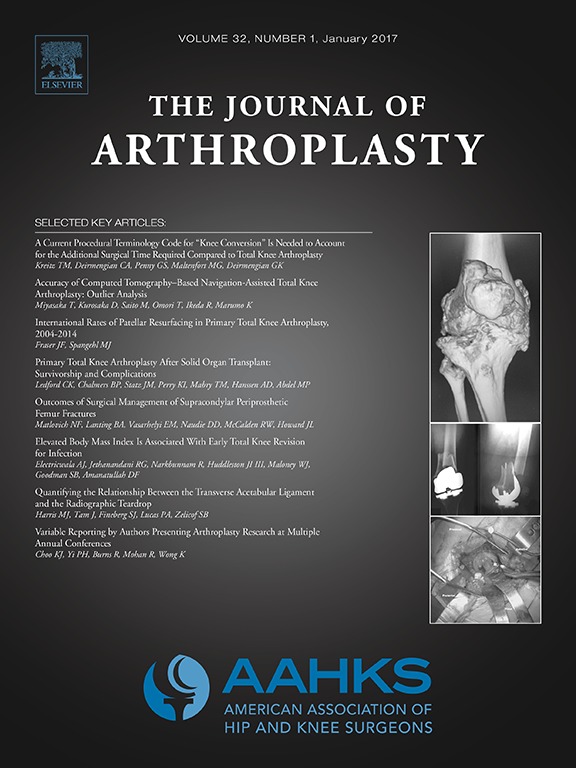
ARTHROPLASTY
Similar clinical outcomes between PAI with liposomal bupivacaine and continuous FNB following TKA
J Arthroplasty. 2019 Mar;34(3):495-500.65 patients scheduled for a unilateral total knee arthroplasty were randomized to receive a continuous femoral nerve block (FNB) with bupivacaine or a peri-articular injection with liposomal bupivacaine (EXPAREL). The primary outcome of interest was the pain intensity during maximal knee flexion, specifically at 24 hours. Secondary outcomes included pain intensity at rest, during movement and during axial load, knee flexion, proportion of patients requiring knee immobilization during physical therapy, time to first use of patient controlled analgesia, narcotic consumption, post-operative nausea and vomiting, patient satisfaction, as well as peak and mean serum bupivacaine concentrations. Follow up was performed up to 72 hours post-operation. The results from this study found no significant differences in pain scores at rest, during motion, or during maximal flexion at all time points. Pain scores were significantly higher during axial load at 24 hours in the liposomal bupivacaine group. Time to first use of patient controlled analgesia, as well as the proportion of patients requiring knee immobilization during physical therapy at 24 hours, was significantly favourable in the liposomal bupivacaine group. Lastly, knee flexion range of motion at 48 hours was significantly favourable in the continuous femoral nerve block group. Otherwise, there were no significant differences between groups in the remaining outcomes.
Unlock the full ACE Report
You have access to {0} free articles per month.Click below to unlock and view this {1}
Unlock NowCritical appraisals of the latest, high-impact randomized controlled trials and systematic reviews in orthopaedics
Access to OrthoEvidence podcast content, including collaborations with the Journal of Bone and Joint Surgery, interviews with internationally recognized surgeons, and roundtable discussions on orthopaedic news and topics
Subscription to The Pulse, a twice-weekly evidence-based newsletter designed to help you make better clinical decisions
Exclusive access to original content articles, including in-house systematic reviews, and articles on health research methods and hot orthopaedic topics
Or upgrade today and gain access to all OrthoEvidence content for just $1.99 per week.
Already have an account? Log in


Subscribe to "The Pulse"
Evidence-Based Orthopaedics direct to your inbox.
{0} of {1} free articles
Become an OrthoEvidence Premium Member. Expand your perspective with high-quality evidence.
Upgrade Now












































































